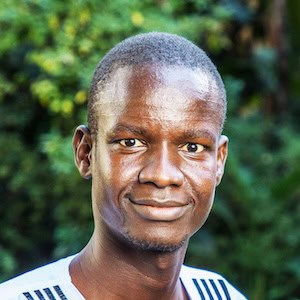-
NexThought Monday – Counterintuitive Ideas are the Right Answer for Sustainable Enterprises
We often assume low-income communities will purchase a product or service simply because we think they would need it for more comfortable, better lives – just as we would. However, we rarely give enough importance to the social codes, the priorities, the calculations and mental process behind the actual decision-making.
- Categories
- Uncategorized
-
Twitter Top Ten – 2/15/15
We’ve got plenty of tweets in this "Valentine’s Day Weekend" edition of our Twitter Top Ten. And we’ve even thrown in a holiday-themed tweet just for the occasion - a great example of behavioral science humor (yes, there is such a thing). Beyond that, we’ve got tweets covering everything from the ongoing debate over microcredit to the (hopeful) winding down of an epidemic in this week’s list.
- Categories
- Health Care
-
Weekly Roundup : Speaking ‘nuance’ to power
Unilever, Acumen and the Clinton Giustra Enterprise Partnership, part of the Clinton Foundation, this week announced the Enhanced Livelihoods Investment Initiative. The initiative aims to build up privately held agricultural enterprises as a conduit for 300,000 smallholder farmers to join the massive supply chain network of multinational Unilever. We were reminded that even as impact investing is moving with a full head of steam, it’s important not to zoom past what it’s really all about.
- Categories
- Agriculture
-
Spending More, Getting Less: Public health expenditures aren’t paying off in South Africa, so private firms are stepping into the gap
South Africans have relatively low out-of-pocket health care expenses, while government spending on health care is comparatively high. But that hasn’t translated into quality services for the country’s poor. A new initiative seeks to understand how private sector innovators are finding unique ways to serve the needs of low-income South Africans in this unique country context.
- Categories
- Health Care
- Tags
- public health
-
Investing in Airtime: How an unlikely financial innovation is promoting economic security for girls in South Africa
Only 37 percent of women In the developing world have bank accounts, yet research has shown that poor women are inherent savers. Stellar has created an open source payments platform that’s being used to provide a mobile wallet in South Africa focused on promoting savings among girls. The wallet has a unique feature: along with cash deposits, it lets users deposit mobile airtime, and withdraw it later as cash.
- Categories
- Technology
-
January’s Most Viewed, Most Shared Posts: Forward progress in inclusion – from finance to the crowd
January’s most-read and most-shared posts on NextBillion took a decidedly forward-looking posture to financial access. And why not? It’s the start of a new year and we have several reasons to be excited for 2015.
- Categories
- Technology
- Tags
- savings
-
New Financial Inclusion Innovation in Colombia: Government approves electronic deposits through non-bank entities
Colombia has included financial inclusion as a priority in its national agenda since a very early stage. Last fall, the Colombian Congress took the latest step, passing a law creating a new type of financial institution called Specialized Electronic Deposit and Payment Institutions. The Alliance for Financial Inclusion spoke with a Colombian regulator about the new law.
- Categories
- Finance, Impact Assessment
-
‘My Home, Your Business’: A New Evaluation Tool Based on Nearly 100 Cases, 25 Interviews With Firms, Experts in Affordable Housing
Ghost towns built by well-meaning developers and governments can be found in many corners of the world. But these failed projects only tell part of the story. Innovative companies and partners are learning from the past and building houses people want to live in and business models that make investors listen, according to "My Home, Your Business – A Guide to Affordable Housing Solutions for Low-Income Communities.”
- Categories
- Impact Assessment










